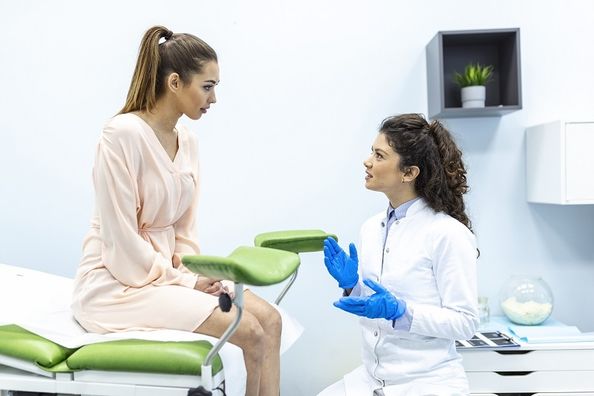Talking about gastrointestinal-related symptoms can be embarrassing, however, it is important that you notify your healthcare provider of any changes in your health. When knowing all the facts, your gastroenterologist can better diagnose your condition and provide you with treatment options for symptom relief. Your provider may also run diagnostic tests, as many gastrointestinal (GI) disorders and conditions have underlying symptoms, which in some cases can lead to early detection of cancer.
If you experience any of the following symptoms, you should consult with your provider:
- Abdominal cramps – Pain in your abdomen is not always a cause for concern, but you should consult your medical provider for reoccurring symptoms or sudden extreme pain. Many people who suffer from Irritable Bowel Syndrome (IBS) regularly experience cramps or stomach pain after eating and find relief from this pain after a bowel movement. Other causes of severe abdominal pain include diverticulitis and stomach ulcers1.
- Acid reflux – If you consistently have heartburn more than once a week, you may benefit from a visit to the gastroenterologist. Acid reflux that goes untreated can turn into a more severe condition called gastroesophageal reflux disease (GERD). You may also experience problems with swallowing if you have acid reflux. Typically, a change in your eating habits and taking the right medications can provide relief from acid reflux and its related symptoms2.
- Bloating – Bloating can be caused by a variety of health conditions such as constipation, food intolerance or chronic conditions. Prolonged constipation can be a sign of a more serious problem. Your medical provider may recommend supplements and a diet that will encourage bowel movements and relieve constipation and bloating. If your provider suspects a food intolerance, they may order a food allergy panel. Those who have celiac disease often experience bloating as a symptom and can resolve it by changing their diet.
- Bloody stool or rectal bleeding – Blood in your stool can be caused by a variety of health conditions. Minor conditions such as hemorrhoids can often be the cause of rectal bleeding or bloody stool. Hemorrhoids can be treated with non-invasive treatments or ointments prescribed by your medical provider3. Bloody stool can also be caused by a more serious condition such as colon cancer. To rule out colon cancer, your medical provider may suggest a colonoscopy.
- Severe diarrhea – Diarrhea lasting longer than a few days could be a sign of a more serious problem such as a chronic GI disease. Ongoing diarrhea can cause other health problems such as dehydration and unplanned weight loss. If you traveled outside of the country, it is possible your immune system is battling a viral or bacterial infection. Your gastroenterologist can prescribe you medication to help reduce loose bowel movements.
GI disorders and conditions can vary in symptoms for each person which is why it is important to seek medical advice. Our gastroenterologists are highly skilled in diagnosing and treating these symptoms. If you are experiencing any of the above GI symptoms, schedule an appointment online or call 630−717−2600.
1Stomach ache and abdominal pain (2020, October 22). In NHS Inform. Retrieved from https://www.nhsinform.scot/illnesses-and-conditions/stomach-liver-and-gastrointestinal-tract/stomach-ache-and-abdominal-pain
2Gastroesophageal reflux disease (GERD) (2020, May 22). In Mayo Clinic. Retrieved from https://www.mayoclinic.org/diseases-conditions/gerd/symptoms-causes/syc-20361940
3Hemorrhoids (2019, July 3). In Mayo Clinic. Retrieved from https://www.mayoclinic.org/dis…
Health Topics:







